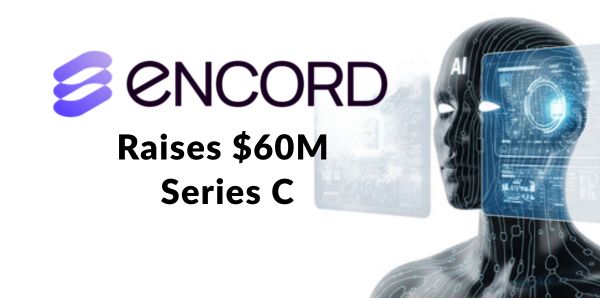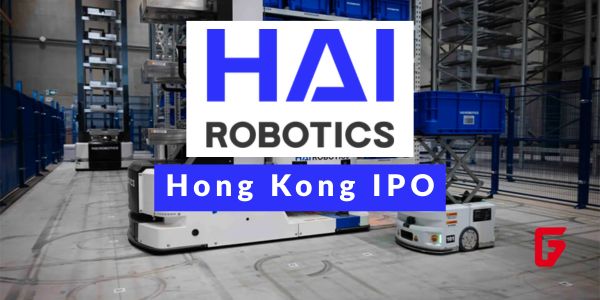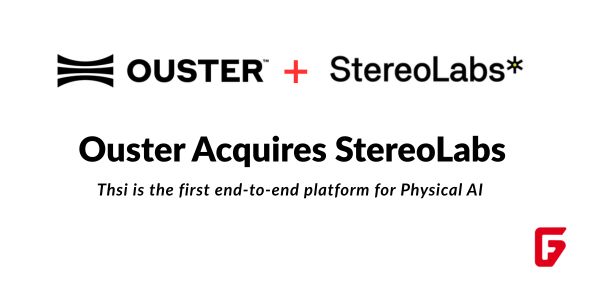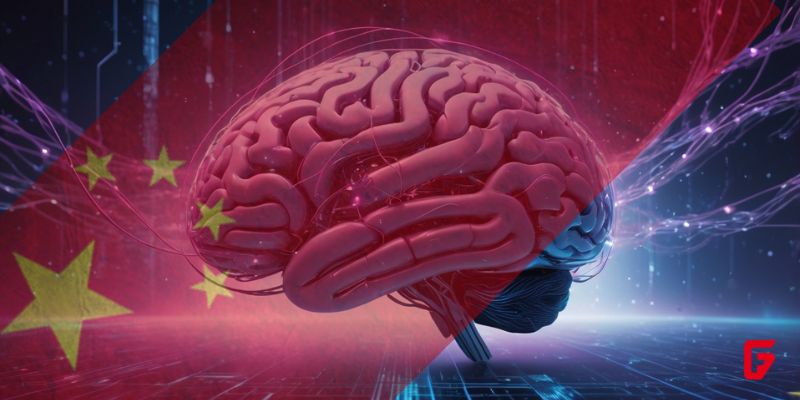Startups & Business News

In the heart of the ever-evolving realm of healthcare, a silent revolution is taking place, driven by the unceasing march of technology. It is the dawn of a new era in medicine, where the fusion of data and intelligence is transforming patient care and reshaping the entire healthcare landscape.
Artificial Intelligence (AI) has emerged as the vanguard of this transformation, rewriting the rules and redefining possibilities. Across the healthcare spectrum, from the tiniest clinics to towering medical institutions, AI is quietly but profoundly changing the way healthcare is delivered.
With the precision of a surgeon’s scalpel and the boundless capacity of an infinite library, AI is ushering in an era of unprecedented advancements in diagnostics, treatment, and patient safety. But what precisely are these advancements, and how are they impacting the lives of patients and healthcare professionals? The future of healthcare is here, and artificial intelligence is at its heart.
How is Artificial Intelligence Used in Healthcare?
Artificial Intelligence (AI) in healthcare isn’t a distant dream; it’s a reality with a significant impact and the applications are diverse and continually expanding. Some key key ways AI is impacting healthcare include:
1. Diagnosis and Medical Imaging
AI is revolutionizing medical diagnosis and imaging, enhancing healthcare outcomes. This cutting-edge technology analyzes X-rays, MRIs, and CT scans with remarkable accuracy, enabling:
- Faster disease detection
- Improved diagnostic precision
- Early identification of health risks
- Reduced workload for radiologists
2. Drug Discovery and Development
AI is revolutionizing drug discovery and development, accelerating the creation of new treatments. Key benefits include:
- Faster identification of potential drug candidates
- Improved prediction of drug efficacy and side effects
- Streamlined clinical trial processes
- Reduced time and costs in bringing new drugs to market
3. Virtual Patient Care
Virtual patient care represents a transformative approach to healthcare delivery powered by artificial intelligence. This innovative method leverages advanced technologies to provide remote, personalized, and efficient medical support to patients across various settings.
- 24/7 Accessibility: AI-powered virtual health assistants offer round-the-clock support, answering health questions and providing immediate guidance
- Intelligent Triage: Advanced chatbots can assess patient symptoms, recommend appropriate care paths, and reduce unnecessary doctor visits
- Remote Monitoring: AI enables continuous tracking of patient vital signs and health metrics through connected devices, alerting healthcare providers to potential issues
- Personalized Interactions: By analyzing patient data, virtual care systems can deliver tailored health recommendations and support
4. Administrative Efficiency
Artificial Intelligence is revolutionizing administrative efficiency in healthcare, streamlining operations and reducing workload for medical professionals. AI-powered solutions are transforming healthcare administration by:
- Automating time-consuming paperwork and documentation tasks
- Optimizing scheduling and resource allocation
- Enhancing billing processes and reducing errors
- Improving inventory management and supply chain operations
- Facilitating faster and more accurate claims processing
5. Personalized Treatment Plans
Artificial Intelligence is revolutionizing healthcare by enabling personalized treatment plans, tailoring medical interventions to individual patient needs. This advanced approach leverages AI’s powerful data analysis capabilities to optimize patient care and improve outcomes. Key benefits of AI-driven personalized treatment plans include:
- Analyzing vast amounts of patient data for tailored therapies
- Considering genetic profiles, medical history, and lifestyle factors
- Predicting treatment responses and minimizing side effects
- Enhancing treatment efficacy and patient outcomes
- Enabling precision medicine across various diseases
Do Patients Trust the Use of Artificial Intelligence in Healthcare?
Patient trust in AI-powered healthcare remains a complex and evolving issue. Recent studies indicate a significant divide in public opinion, with more than half of patients expressing reservations about AI-driven medical advice. While many recognize AI’s potential to improve diagnostic accuracy and treatment efficacy, concerns persist regarding data privacy, reduced face-time with physicians, and the technology’s reliability.
Interestingly, patient acceptance of AI increases when healthcare providers explain its use and benefits, highlighting the crucial role of human oversight and communication in building trust. As AI continues to transform healthcare delivery, addressing these trust issues through education, transparency, and demonstrated benefits will be essential for widespread adoption and optimal patient outcomes.
Is Artificial Intelligence Going to Replace Doctors?
Artificial Intelligence (AI) is revolutionizing healthcare, but it’s unlikely to completely replace doctors in the foreseeable future. While AI has shown impressive capabilities in areas like medical imaging analysis, disease diagnosis, and treatment planning, it’s designed to complement rather than substitute human expertise. The future of healthcare lies in physician-machine collaboration, where AI augments clinical decision-making and automates routine tasks, allowing doctors to focus on complex patient care, empathy, and critical thinking.
This synergy between human intelligence and AI has the potential to improve diagnostic accuracy, streamline workflows, and enhance overall patient outcomes. However, the irreplaceable human elements of healthcare, such as compassion and nuanced judgment, ensure that doctors will remain essential in providing comprehensive, patient-centered care.
Final Remarks
As we look to the future of healthcare, the role of artificial intelligence stands out as a beacon of hope and innovation. AI has the potential to enhance patient care, streamline operations, and make healthcare more accessible to everyone.
While the technology is exciting, it’s important to remember that at its core, healthcare is about people. The ultimate goal of integrating AI is not to replace human touch but to empower healthcare professionals to provide even better care.

futureTEKnow
Editorial Team
futureTEKnow is a leading source for Technology, Startups, and Business News, spotlighting the most innovative companies and breakthrough trends in emerging tech sectors like Artificial Intelligence (AI), Robotics, and the Space Industry.
Discover the companies and startups shaping tomorrow — explore the future of technology today.
Most Popular
Trending Companies
Latest Articles

Dwelly Raises $93M to Supercharge AI-Powered UK Rentals Roll-Up
London startup Dwelly just landed $93M to snap up UK rental agencies and inject AI smarts. Founders from Uber and

Encord Raises $60M Series C: Fueling Physical AI Data Wave
Encord just landed $60M in Series C funding to supercharge data tools for physical AI. Founders Eric Landau and Ulrik

Foodforecast Raises €8M Series A to Slash Ultra-Fresh Food Waste with AI
Foodforecast, a Cologne AI foodtech firm, just scored €8M in Series A funding led by SHIFT Invest. Their tools predict

AI-Driven Operational Excellence: How Leaders Scale Ownership, Discipline, and Continuous Improvement in 2026
In 2026, AI scales operational excellence fundamentals—clear ownership, disciplined execution, and continuous improvement—letting leaders focus on outcomes while systems handle

VoiceLine raises €10M to scale voice AI for enterprise frontline teams
Munich-based VoiceLine has closed a €10M Series A round to grow its voice AI platform for frontline sales and service

AI-Driven Logistics & Distribution Transformation: From Insight to Scalable Impact
AI is redefining logistics transformation—from network design to real-time execution. This article explores how data-driven insight, intelligent automation, and scalable

Hai Robotics Hong Kong IPO: From Startup Funding to Warehouse Robot Leader
Shenzhen’s Hai Robotics, pioneer in ACR warehouse robots, files for HK IPO after raising over $500M in funding rounds led

AI-Enabled Process Engineering & Continuous Improvement: Designing Systems That Learn
Explore how AI transforms process engineering and continuous improvement into self-learning systems. This article explains how organizations can design operations

Ouster Acquires StereoLabs: Unified Physical AI Sensing Platform Launches
Ouster’s $35M StereoLabs acquisition fuses lidar and ZED cameras into end-to-end Physical AI sensing. Founders Cecile Schmollgruber and team drive

Bretton AI Lands $75M Series B Funding to Scale AI Agents for Financial Crime and AML/KYC Compliance
Bretton AI’s $75M Series B modernizes AML KYC compliance via AI agents, slashing staffing costs for banks and fintechs like

Axiom Space Raises $350M to Build Commercial Space Station and NASA Spacesuits
Axiom Space has locked in a fresh $350M raise to push its commercial space station and NASA lunar spacesuits toward

Santé Raises $7.6M Seed: AI Fintech Revolution for Wine and Liquor Retail
New York startup Santé secures $7.6M seed to build AI-powered POS for liquor stores, tackling regs & inventory woes after
futureTEKnow is focused on identifying and promoting creators, disruptors and innovators, and serving as a vital resource for those interested in the latest advancements in technology.
© 2026 All Rights Reserved.
![Discover the top 10 AI companies in Germany [1st Edition], revolutionizing industries with cutting-edge technology and innovations.](https://futureteknow.com/wp-content/uploads/2025/02/Top-10-AI-Companies-in-Germany-Leading-the-Tech-Revolution-futureTEKnow.jpg)










